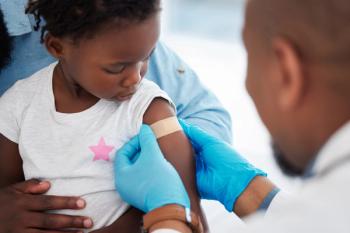
Misinformation is fueling parental fears and a concerning drop in childhood vaccines.

Adam James, PharmD, is manager of immunization and clinical programs at Rite Aid, as well as other clinical programs such as preexposure/postexposure prophylaxis and travel health.

Misinformation is fueling parental fears and a concerning drop in childhood vaccines.

Adam James, PharmD, and Chris Altman, PharmD, explain how pharmacists can build trust and reduce vaccine hesitancy by clearly communicating thimerosal’s limited role in today’s immunizations and addressing patient concerns with empathy and education.
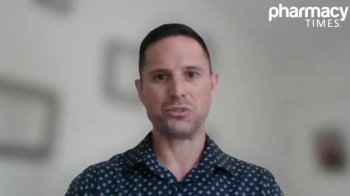
Adam James, PharmD, and Chris Altman, PharmD, discuss renewed public scrutiny of thimerosal, its limited use in vaccines today, and how new guidance may affect pharmacists and patient confidence moving forward.
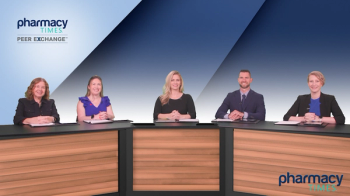
Panelists discuss the evolving management of RSV, highlighting the importance of increasing awareness and education, anticipating advances in testing, data reporting, and treatment options like monoclonal antibodies and antivirals, and considering future vaccination strategies such as booster doses to enhance prevention and patient outcomes.

Panelists discuss strategies to address patient hesitancy around receiving multiple vaccines—flu, COVID-19, and RSV—simultaneously during the fall, emphasizing CDC recommendations for co-administration, educating patients about manageable adverse effects, tailoring conversations to individual concerns, and encouraging year-round RSV vaccination to maximize protection and reduce missed opportunities.

Panelists discuss how community pharmacies have become trusted hubs for adult vaccinations, with pharmacists not only administering vaccines but also educating patients and coordinating with other health care providers to ensure clear, unified messaging; they emphasize the importance of collaboration, empowering pharmacists to use clinical judgment, and actively navigating insurance challenges to improve vaccine access and public health outcomes.

Panelists discuss that building trust with vaccine-hesitant patients requires pharmacists to slow down, listen empathetically, and ask open-ended questions to understand individual concerns; by addressing specific fears with clear, tailored information and practicing cultural sensitivity, pharmacists can foster ongoing, respectful dialogue that gradually encourages vaccine acceptance.

Panelists discuss hesitancy surrounding the new RSV vaccine, highlighting factors such as uncertainty about safety and effectiveness, cost concerns, limited health literacy, language barriers, and lingering skepticism fueled by the COVID-19 pandemic, emphasizing how pharmacists can address these issues through tailored education, insurance guidance, and culturally sensitive communication to build patient trust and improve vaccine uptake.

Panelists discuss recent safety updates on RSV vaccines, including a rare potential risk of Guillain-Barré syndrome (GBS) in older adults receiving recombinant vaccines, emphasizing that benefits outweigh risks and highlighting the pharmacist’s role in educating patients about common adverse effects, recognizing early signs of rare adverse events, and navigating regulatory guidance to support safe, informed vaccination decisions.

Panelists discuss that effective shared clinical decision-making for RSV vaccination begins with clear, simple education about RSV’s risks and vaccine benefits, encourages patient questions, and involves transparent communication about how vaccines work and their safety; they emphasize that pharmacists already practice this approach routinely and should confidently use it to support informed patient choices and improve vaccine uptake.

Panelists discuss that pharmacies should prioritize practical workflow and patient management over clinical preference when administering RSV vaccines, since all FDA-approved vaccines are equally recommended; focusing on factors like preparation ease, storage, patient eligibility, and insurance helps streamline operations and promote timely vaccination without delays due to product choice or patient preference.

Panelists discuss the 3 FDA-approved RSV vaccines for high-risk adults—2 recombinant protein-based (1 adjuvanted, 1 bivalent) and one mRNA-based—highlighting differences in formulation, mechanism, and preparation, and emphasizing the importance of education to address misconceptions and guide appropriate vaccine selection.

Panelists discuss how pharmacies can boost RSV vaccination rates in high-risk adults by leveraging patient visits—especially during other immunizations—using integrated immunization registries and medication profiles to identify eligible patients, involving pharmacy technicians in vaccine conversations, and employing presumptive recommendation strategies to increase acceptance and awareness.

Panelists discuss how pharmacists can address patients’ growing vaccine fatigue and misconceptions—such as underestimating RSV’s severity in adults or believing it requires multiple doses—by providing clear, consistent education and emphasizing that a single RSV vaccine offers protection against serious illness in high-risk populations.

Panelists discuss how pharmacists can identify high-risk adults for severe RSV—such as those with chronic conditions or advanced age—by reviewing medication profiles, and how they can overcome barriers like limited awareness and workflow challenges to drive vaccine uptake through education, accessibility, and recent policy-supported coverage.

Panelists discuss clinical strategies to improve RSV vaccine uptake in high-risk adults by reviewing disease severity, comparing approved vaccines, and emphasizing the pharmacist�’s pivotal role in patient education and vaccine advocacy to overcome hesitancy and increase protection in vulnerable populations.
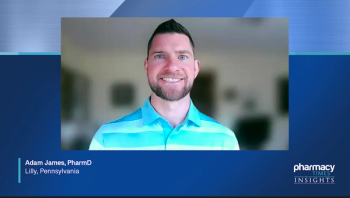
A panelist discusses key insights for pharmacists to prioritize, including staying informed about new respiratory syncytial virus (RSV) vaccines such as Arexvy and Abrysvo, educating patients on the benefits of vaccination, monitoring common adverse effects, ensuring timely access to vaccines, and playing a crucial role in supporting patient safety and prevention efforts for RSV.

A panelist discusses recent advancements in the respiratory syncytial virus (RSV) vaccine space, including the approval of Arexvy and Abrysvo for older adults and pregnant individuals, the development of promising mRNA and protein subunit vaccines for high-risk groups, and ongoing studies to optimize dosing schedules and booster needs, all aimed at reducing RSV-related hospitalizations and deaths.

A panelist discusses how physicians can support pharmacists in monitoring respiratory syncytial virus (RSV) vaccine adverse events (AEs), such as soreness, fatigue, and headache, while using clear, empathetic communication to educate patients about the temporary nature of these symptoms and the significant benefits of preventing severe RSV illness.

A panelist discusses how physicians can collaborate with pharmacists to share patient information, coordinate vaccine schedules, and reinforce recommendations, while utilizing resources such as CDC guidelines, patient brochures, and digital tools to provide clear, evidence-based education on RSV prevention and vaccination.

A panelist discusses how physicians can collaborate with community pharmacists to enhance respiratory syncytial virus (RSV) vaccine uptake by leveraging pharmacists' expertise in patient education, addressing vaccine hesitancy through empathetic communication, and emphasizing the safety, benefits, and risks of RSV vaccination.

A panelist discusses how physicians can navigate respiratory syncytial virus (RSV) vaccine selection by considering patient age, pregnancy status, and seasonality, highlighting the approved indications for Arexvy and Abrysvo, including maternal immunization to protect infants through passive immunity.

A panelist discusses how physicians can partner with pharmacists to identify respiratory syncytial virus (RSV) vaccine candidates among high-risk populations, emphasizing the pharmacist’s role in prevention efforts and the importance of supportive care and awareness of newly approved vaccines and monoclonal antibodies.

A panelist discusses how physicians can recognize the burden of RSV in high-risk populations, stay informed about preventive strategies such as vaccines and monoclonal antibodies, and apply clinical insights to reduce severe outcomes and hospitalizations.

Many patients may struggle to understand the complex immunization schedules compiled by the CDC.

Patient education on the risks of the long-term illness can help overcome vaccine hesitancy.

Embracing artificial intelligence and other tools will be necessary to push the field forward.
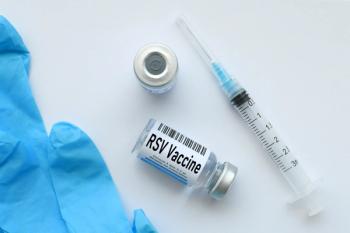
New ACIP recommendations provide clarity, but questions linger for those aged 60 to 74 years.

As Summer Approaches, Many Will Be Planning Vacations and Trips Abroad

Sharing data and a personal recommendation can make a difference in a patient’s life

Published: December 24th 2024 | Updated:
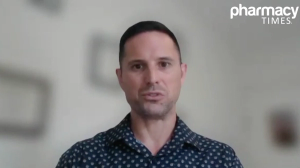
Published: July 15th 2025 | Updated:
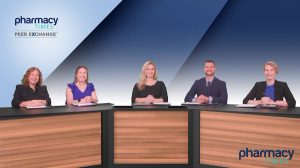
Published: July 11th 2025 | Updated:

Published: July 11th 2025 | Updated:

Published: February 19th 2025 | Updated:

Published: July 11th 2025 | Updated: